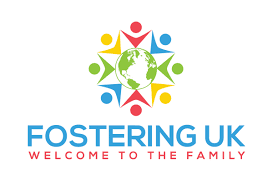Foster Care: Providing Love, Stability, and Hope to Children
Foster care is a kind and necessary institution that attempts to give vulnerable children who are unable to live with their biological parents love, stability, and hope. For kids who have endured abuse, neglect, or other difficult situations, it provides a temporary home and a supportive atmosphere. We will delve into the world of foster care in this blog, examining its importance, the procedure involved, the function of foster families, and the effects it has on children's lives.
Understanding Foster Care
A child welfare system called foster care makes sure that children who are unable to live with their birth families are safe, healthy, and developing. It offers a safe, supportive atmosphere where kids can recover, develop, and thrive while their parents try to sort out the problems that caused the breakup. A critical intervention, foster care provides kids with a temporary substitute family that can take care of their physical, emotional, and social needs.
The Process of Foster Care
To ensure that the kids are placed in loving and secure homes, there are a number of phases in the foster parent application process. To determine their appropriateness and preparation for fostering, prospective foster parents go through a thorough screening process that includes background checks, interviews, and house inspections. Upon approval, they get training and assistance to prepare them for the particular demands of foster care.
The Role of Foster Families
The core of the foster care system is foster families, commonly referred to as foster parents. They welcome children in need into their homes and hearts, giving them security, attention, and love at a trying time. Foster parents are crucial in helping to meet the children's daily requirements, which also include giving them a secure home, wholesome meals, an education, medical care, and emotional support. They act as mentors, defenders, and role models for kids, assisting them in managing their emotions, fostering self-worth, and learning critical life lessons.
Impact on Children's Lives
Children who are in the foster care system are profoundly affected by the experience. It gives them an opportunity to recover from past traumas, find stability, and get the attention and assistance they need. Foster homes assist children in forming healthy bonds, regaining trust, and developing a good sense of self-worth by offering a compassionate and loving environment. A child's intellectual performance, social skills, and general well-being can all be greatly enhanced by the foster care system, providing them a better chance for a successful future.
Challenges and Rewards
Foster care has many benefits but is not without its difficulties. Foster parents must cope with difficult emotions, support kids from different backgrounds and experiences, and navigate the legal and administrative complexities of the system, among other special responsibilities. The benefits of seeing a kid thrive in their care and experiencing their development and resiliency, however, greatly exceed the difficulties. The Foster care system gives people and families the chance to have a long-lasting impact on the lives of vulnerable kids by giving them the love, security, and hope they need to grow.
Conclusion
UK fostering is doing the work for children who are unable to live with their biological families, foster care provides an essential safety net. It provides them with a safety net, an opportunity to encounter love, security, and hope under trying circumstances. Foster homes are crucial in helping children's overall growth and well-being by offering a supportive atmosphere. Foster parents make a positive difference that can last a lifetime by opening their homes and hearts to children. Foster care is still able to provide vulnerable children with a brighter and more optimistic future because of the commitment and compassion of these exceptional people and families.




Comments
Post a Comment